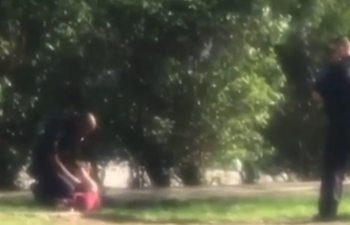NEW YORK, March 8 (Xinhua) -- Awarding winning film Ballad From Tibet by Chinese director Zhang Wei is scheduled to premiere in New York City on Saturday, March 10.
The film, which tells the story of four visually impaired kids from China's Tibet Autonomous Region embarking on an odyssey for their dreams, will be presented at the Bronx Library Center on Saturday, at Mid-Manhattan Library on Sunday, at Lehman College and Marlene Meyerson JCC Manhattan on Tuesday, and at the Museum of Modern Art on Wednesday.
This screening is part of the 10th Annual ReelAbilities Film Festival, the largest festival of its kind promoting awareness and inclusion through the stories and artistic expressions of people with different abilities.
Based on a true story, Ballad from Tibet is about the four Tibetan kids -- Thupten, Sonam, Kelsang and Droma -- achieving their dreams against all odds.
Thupten is a 10-year-old boy partially sighted in one eye and blind in the other. His doctor says that there is a chance he could completely lose his sight, but there is an operation that could offer a 50 percent chance of saving his vision. His teacher is adamant that he should have the operation right away, but Thupten is afraid and wants to see the world before his life is plunged into total darkness.
Along with his three friends who also suffer from blindness, Thupten embarks on an exciting adventure. Together they decide to go to Shenzhen in south China's Guangdong Province, a city more than 3,700 km away from Tibetan regional capital Lhasa. They choose Shenzhen because Kelsang, the youngest of the four children, measures the distance with his arm on the map and realizes that it is merely a forearm away.
During the trip Thupten is to serve as the group's leader because, despite his ailing sight, he is the only one among them who can see anything at all.
The reason for the children's decision to go to Shenzhen is their love of music. They are all talented and want to sing their hearts out in front of national audience by participating in a Shenzhen-based reality show.
The foursome's trip is indeed fun, but also turns out to be dangerous as well. Luckily, help is on hand along the way in the form of a nomad family, a shepherd, a motorcycle club, and a TV producer's assistant.
The film is in fact inspired by a true story. In 2010, a group of nine Tibetan children sang on the stage of the reality show China's Got Talent, which was broadcast nationwide. Aged 10 to 13, all of them were students from the school for blind children in Lhasa, earning a rousing applause from the four judges and studio audience alike with their pure and youthful voices.
Ballad From Tibet has won the award for Best Children's Feature at the 13th China International Children's Film Festival in November 2017, and earned nominations at 17 different international children's film festivals in Germany, Canada, Japan, Greece, Australia and India.













